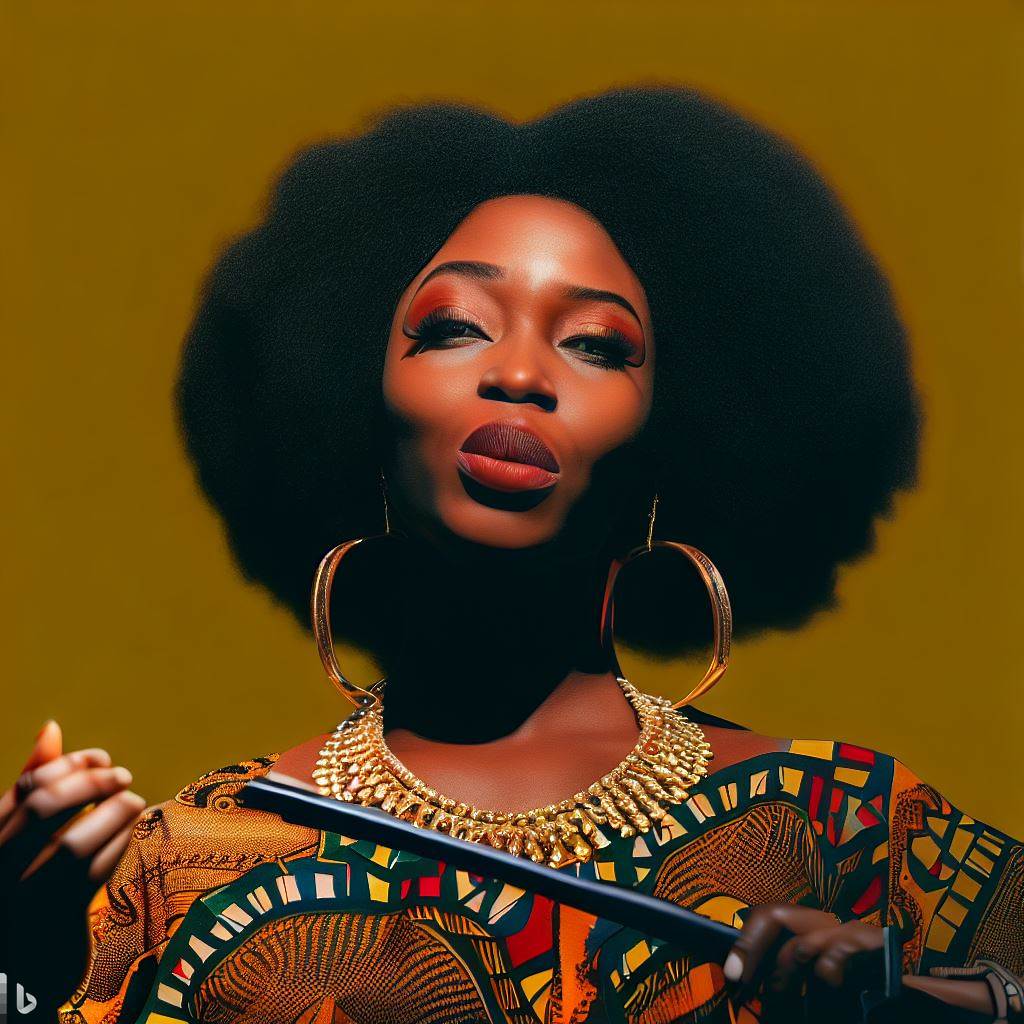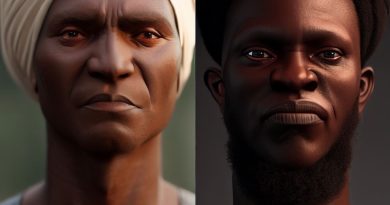Influence of Afrobeat on Nigerian Music Artists
Last Updated on September 1, 2023
Introduction
Afrobeat, a dynamic genre, has significantly shaped Nigerian music artists, catalyzing their creativity and sound evolution. Afrobeat Influence on Nigerian Music Artists is immense.
The infectious blend of traditional African rhythms, jazz, funk, and highlife elements has propelled Nigerian musicians onto the global stage.
This genre, pioneered by Fela Kuti in the late 1960s, sparked a wave of innovation, inspiring artists to experiment with Afrobeat’s fusion of beats and socially conscious lyrics.
Afrobeat’s infectious grooves have influenced artists like Burna Boy, Wizkid, and Tiwa Savage, infusing their tracks with its signature energy.
Through this section, we’ll delve into how Afrobeat’s vibrant cadence has indelibly marked the trajectory of Nigerian music artists, showcasing its enduring legacy.
Origins of Afrobeat
A. Brief History of Afrobeat Genre
- Afrobeat is a genre that originated in Nigeria in the 1960s and 1970s.
- It was created by Nigerian musician and political activist Fela Kuti, who fused traditional Nigerian music with elements of jazz and funk.
- Afrobeat is characterized by its infectious rhythms, complex horn arrangements, and socially conscious lyrics.
- The genre became popular not only in Nigeria but also across Africa and eventually gained international recognition.
- Afrobeat served as a platform for Fela Kuti and other Nigerian artists to express their political views and address social issues.
B. Key Contributors to the Development of Afrobeat
- Fela Kuti, often referred to as the “father of Afrobeat,” played a pivotal role in its development.
- He combined traditional Nigerian rhythms, highlife, and jazz influences to create a unique sound.
- Fela’s politically charged lyrics and energetic performances made him a controversial figure, but also a beloved icon.
- Another prominent figure in the development of Afrobeat is Tony Allen, Fela Kuti’s longtime drummer and collaborator.
- Allen’s innovative drumming style, characterized by complex polyrhythms, became a defining element of Afrobeat.
All in all, Afrobeat is a genre that emerged in Nigeria during the 1960s and 1970s, blending traditional Nigerian music with jazz and funk influences.
Fela Kuti and Tony Allen played significant roles in its development, with Fela’s politically charged lyrics and Tony’s groundbreaking drumming style.
Afrobeat continues to influence Nigerian music artists today, serving as a powerful tool for expressing social and political messages.
Read: Emerging Trends in Nigeria’s Performers’ Agent Industry
Characteristics of Afrobeat
A. Distinctive musical elements of Afrobeat
- Highlife: Influence of Ghanaian highlife music with its upbeat tempo and guitar-driven melodies.
- Jazz: Incorporation of complex jazz harmonies, improvisation, and instrumentation.
- Funk: Fusion of funk elements, such as syncopated rhythms, strong basslines, and horn sections.
- Traditional West African rhythms: Integration of traditional African percussion and drum patterns.
B. Political and social themes commonly found in Afrobeat lyrics
- Socio-political criticism: Afrobeat artists express their views on corruption, inequality, and social injustice.
- Independence and Pan-Africanism: Celebrating African identity, freedom, and unity.
- Advocating for change: Encouraging individuals to stand up against oppression and fight for their rights.
- Awareness of cultural heritage: Afrobeat lyrics often emphasize the preservation and appreciation of African culture.
Read: The Legal Aspect of Being an Artists’ Agent in Nigeria
Impact of Afrobeat on Nigerian Music Artists
A. The direct influence of Afrobeat on Nigerian music artists’ sound and style
Afrobeat, a genre that originated in Nigeria in the 1960s, has had a profound impact on Nigerian music artists.
This unique blend of traditional African rhythms, jazz, funk, and highlife music has shaped the sound and style of numerous Nigerian artists.
The infectious beats, vibrant melodies, and socially conscious lyrics of Afrobeat have inspired musicians to create music that reflects their cultural heritage and resonates with audiences worldwide.
The influence of Afrobeat on Nigerian music artists can be heard in the incorporation of rhythmic percussion and complex drum patterns into their compositions.
Artists have embraced the polyrhythmic nature of Afrobeat, adding layers of intricate beats that create a rich tapestry of sound.
This infusion of Afrobeat elements has given Nigerian music a distinct flavor, setting it apart from other genres and establishing its own unique identity.
B. Examples of Nigerian artists who have embraced Afrobeat, such as Burna Boy, Wizkid, and Tiwa Savage
Many Nigerian artists have fully embraced Afrobeat, incorporating its elements into their music and elevating the genre to new heights.
One notable artist who has embraced Afrobeat is Burna Boy. His music showcases a fusion of traditional Afrobeat with contemporary influences, creating a captivating and infectious sound.
Burna Boy’s hit songs like “Ye” and “Anybody” are perfect examples of his ability to blend Afrobeat with modern sounds, captivating listeners worldwide.
Wizkid, another Nigerian artist, has also adopted Afrobeat in his music, infusing it with international flavors and making it accessible to a global audience.
His collaborations with international artists like Drake and Beyoncé have brought Afrobeat to the forefront of mainstream music.
Wizkid’s songs such as “Ojuelegba” and “Joro” have become international hits, showcasing his ability to stay true to his Nigerian roots while appealing to a wide range of listeners.
Tiwa Savage, one of the leading female Nigerian artists, has also embraced Afrobeat in her music. Her soulful voice combined with Afrobeat’s rhythmic melodies creates a unique and captivating sound.
Tiwa Savage’s songs like “All Over” and “Ma Lo” have become anthems, showcasing her talent and firmly establishing her as a force to be reckoned with in the Afrobeat genre.
C. Commercial success and popularity of Nigerian artists incorporating Afrobeat elements in their music
The incorporation of Afrobeat elements into Nigerian music has propelled many artists to commercial success and international acclaim.
These artists have garnered millions of streams and views, attracting a global fanbase. Their ability to fuse Afrobeat with other genres has widened the appeal of Nigerian music, making it a global phenomenon.
Furthermore, the popularity of Afrobeat has led to collaborations between Nigerian artists and acclaimed international musicians.
This exposure has not only elevated the status of Nigerian artists but has also given Afrobeat a global platform.
With iconic collaborations like Drake featuring Wizkid on the hit song “One Dance” and Beyoncé working with Burna Boy on “Ja Ara E,” Afrobeat’s influence and popularity have reached unprecedented heights.
In fact, Afrobeat has had a significant impact on Nigerian music artists, shaping their sound, style, and success.
The direct influence of Afrobeat can be heard in the incorporation of rhythmic percussion, complex drum patterns, and socially conscious lyrics.
Nigerian artists like Burna Boy, Wizkid, and Tiwa Savage have fully embraced Afrobeat, blending it with other genres and achieving commercial success on a global scale.
The popularity of these artists and their collaborations with international musicians have brought Afrobeat to the mainstream, solidifying its position as a dominant force in modern music.
Read: A Glimpse at Famous Nigerian Voice Actors: Their Journey
Evolution of Afrobeat in Modern Nigerian Music
In the modern Nigerian music scene, Afrobeat has undergone a significant evolution, blending with other genres and giving rise to new subgenres such as Afrobeats and Afrofusion.
This section will explore the evolution of Afrobeat and its impact on Nigerian music artists.
A. Evolution of Afrobeat and Blend with Other Genres
Afrobeat, a genre pioneered by the legendary Fela Kuti in the 1970s, has evolved over time, incorporating elements from various musical styles to create new and exciting subgenres.
Artists like Burna Boy and Wizkid have embraced this evolution and made substantial contributions to its growth.
- Afrobeats: This subgenre emerged as a fusion of Afrobeat with Western sounds like hip-hop, reggae, and dancehall.
It introduced a more contemporary and energetic sound, appealing to both local and international audiences. - Afrofusion: Another subgenre that has gained popularity in recent years is Afrofusion. It takes Afrobeat as its foundation but incorporates elements from other African genres like highlife, juju, and Afro-pop.
This blend creates a unique and diverse musical experience. - Afro-house: This subgenre combines Afrobeat with electronic dance music, emphasizing catchy beats and infectious rhythms.
Afro-house has gained traction globally, particularly in dance clubs and festivals. - Afro-jazz: Highly influenced by traditional jazz, Afro-jazz infuses Afrobeat with improvisational techniques, complex harmonies, and soulful melodies.
It showcases the versatility of Afrobeat as a genre. - Afro R&B: This subgenre combines Afrobeat with contemporary R&B, creating a smooth and romantic sound.
Artists like Tiwa Savage and Joeboy have excelled in this subgenre, attracting a wide range of listeners.
B. International Recognition and Crossover Success Due to Afrobeat Fusion
The fusion of Afrobeat with global sounds has propelled Nigerian artists to international recognition, leading to remarkable crossover success.
This blending of cultural influences has put Nigerian music on the global map, opening exciting opportunities for artists.
- Beyoncé’s “The Lion King: The Gift” album: The album features several Nigerian artists and incorporates Afrobeat, showcasing the international recognition of Nigerian music and its influence on pop culture.
- Collaborations with international artists: Nigerian artists have collaborated with renowned international acts such as Drake, Chris Brown, and Beyoncé.
These collaborations have exposed Nigerian music to a wider audience, creating new fans and followers globally. - Global music festivals and awards: Nigerian artists have been invited to perform at prestigious music festivals like Coachella, Glastonbury, and Afro Nation.
Their performances have been well-received, solidifying Afrobeat’s place on the global stage. - Grammy recognition: Burna Boy’s Grammy nomination in 2020 for the “Best World Music Album” category further demonstrates the international recognition of Afrobeat and its increasing impact on the global music industry.
- Mainstream chart success: Nigerian artists like Davido, Wizkid, and Burna Boy have achieved mainstream chart success in various countries, including the United States and the United Kingdom.
This crossover success is a testament to the appeal of Afrobeat fusion.
In a nutshell, Afrobeat’s evolution and fusion with other genres have significantly influenced Nigerian music artists.
The emergence of subgenres like Afrobeats and Afrofusion has expanded the reach and appeal of Nigerian music both locally and globally.
The international recognition and crossover success of Nigerian artists validate Afrobeat’s impact on the global music industry, solidifying its position as a vibrant and influential genre.
Read: Nigerian Music: A Look at Its Global Impact

Afrobeat’s Influence Beyond Nigeria
Afrobeat, the popular genre created by Nigerian musician Fela Kuti, has had a significant impact beyond the borders of Nigeria.
Its infectious rhythms, captivating melodies, and powerful messages have resonated with audiences worldwide, influencing music scenes in other African countries and transcending cultural boundaries to inspire international artists and genres.
A. Global Impact on Music Scenes in Other African Countries
One cannot overlook the immense influence Afrobeat has had on music scenes across the African continent.
In countries like Ghana, South Africa, and Kenya, artists have incorporated Afrobeat elements into their own music, fusing it with their local sounds to create unique and vibrant compositions.
For example, in Ghana, the genre known as “Afrobeats” emerged, blending traditional Ghanaian rhythms like highlife with Afrobeat’s grooves and instrumentation.
Artists like Sarkodie, Stonebwoy, and Shatta Wale have achieved immense success with their Afrobeat-infused tracks, not only in Ghana but also across Africa.
Similarly, in South Africa, the influence of Afrobeat can be heard in the music of artists like Black Coffee and Mafikizolo.
The incorporation of Afrobeat elements has added an infectious energy to their songs, captivating audiences both locally and internationally.
In Kenya, Afrobeat’s influence is evident in the music of popular acts like Sauti Sol and Burna Boy.
These artists have embraced Afrobeat’s rhythmic patterns and grooves, infusing them with Kenyan flavors to create a vibrant fusion that has captured the hearts of music lovers.
B. Influence on International Artists and Music Genres
Afrobeat’s influence extends far beyond the African continent, reaching international artists and music genres worldwide. Its impact can be felt in a range of genres, including hip hop, reggae, and pop.
One prime example of Afrobeat’s influence is in the world of hip hop. Artists like Wizkid, Burna Boy, and Davido have collaborated with renowned hip hop artists such as Drake, Beyoncé, and J. Cole.
These collaborations have not only introduced Afrobeat to a global audience but also facilitated a cross-pollination of musical styles, creating a fusion that pushes the boundaries of both genres.
Reggae music, known for its powerful messages and infectious rhythms, has also experienced the influence of Afrobeat.
Artists like Burna Boy and Patoranking have incorporated Afrobeat elements into their reggae-infused tracks, resulting in a fresh and captivating sound that appeals to listeners around the world.
Furthermore, Afrobeat has left its mark on the pop music landscape as well.
Artists like Tiwa Savage and Yemi Alade, known for their catchy melodies and energetic performances, have embraced Afrobeat’s rhythms and incorporated them into their pop songs.
This fusion has not only given their music a distinctive flavor but also showcased Afrobeat to a wider global audience.
In review, Afrobeat’s influence on Nigerian music artists has transcended borders and had a profound impact beyond Nigeria.
Its global impact is evident in the music scenes of other African countries, where artists have embraced Afrobeat and incorporated it into their own compositions.
Additionally, Afrobeat’s influence on international artists and music genres like hip hop, reggae, and pop has resulted in captivating fusions and collaborations that push the boundaries of creativity.
Afrobeat continues to inspire and connect musicians and audiences around the world, solidifying its status as a genre with timeless influence.
Controversies and Criticisms of Afrobeat
Afrobeat, with its undeniably influential sound and cultural impact, has not been immune to controversies and criticisms.
These debates often revolve around Fela Kuti, the pioneer of Afrobeat, and his political activism.
A. Controversy Surrounding Fela Kuti’s Political Activism
Fela Kuti, known for his strong political views and activism, faced significant criticism, both from within Nigeria and internationally.
His songs, such as “Zombie” and “Coffin for Head of State,” directly criticized the corrupt Nigerian government and its leaders.
Some Nigerians saw Fela Kuti as a hero, someone who fearlessly spoke out against injustice, while others viewed him as a troublemaker and a nuisance.
The government dished out punishment, with numerous arrests, beatings, and even the burning down of his iconic commune, Kalakuta Republic.
However, the criticism of Fela Kuti’s political activism wasn’t solely focused on the Nigerian government.
Some critics felt that his music overshadowed his political message, accusing him of using sensationalism and shock value to gain attention. They believed this detracted from the substance of his political activism.
Regardless of the controversies surrounding Fela Kuti, his legacy as a musical and political icon cannot be denied. He inspired generations of Nigerian musicians to use their platforms for social and political change.
B. Debates about Cultural Appropriation and the Commercialization of Afrobeat
As Afrobeat grew in popularity worldwide, it inevitably faced debates about cultural appropriation and the commercialization of its unique sound.
Some argue that non-African artists have appropriated Afrobeat without giving proper credit or understanding its origins.
Instances of Western artists incorporating elements of Afrobeat into their music, sometimes without acknowledging its roots, have led to these debates.
Critics argue that this perpetuates a cycle of exploitation, where African musicians and their contributions are overshadowed or neglected.
On the other hand, supporters of the global spread of Afrobeat argue that it helps in exposing the genre to a broader audience and creates collaborations that bridge cultural gaps.
They believe that cultural exchange is necessary for the growth and evolution of music, and as long as credit is given where it is due, it should be embraced.
A notable example of commercialization of Afrobeat is the rise of Afrobeat-influenced pop music, popularized by Nigerian artists such as WizKid and Davido.
This commercial success has drawn criticism from purists who argue that the genre has become diluted, losing its authenticity and message in the pursuit of mainstream popularity.
Ultimately, the debates surrounding cultural appropriation and commercialization are complex and nuanced.
While Afrobeat’s global popularity increases, it becomes crucial to have open discussions and ensure that artists, regardless of their background, respect and honor the genre’s roots.
Afrobeat’s enduring legacy lies not only in its infectious rhythms but also in the discussions it sparks about social justice, cultural identity, and artistic integrity.
By addressing controversies and criticisms head-on, the movement can continue to evolve and inspire change both within Nigeria and beyond.
Conclusion
In this blog post, we explored the influence of Afrobeat on Nigerian music artists. We highlighted how Afrobeat has shaped the Nigerian music industry and impacted the global music scene.
We saw how artists like Fela Kuti and Burna Boy have embraced Afrobeat to create their unique sound.
Afrobeat’s fusion of traditional Nigerian music with Western elements has given birth to a dynamic and captivating genre.
Nigerian music artists continue to draw inspiration from Afrobeat, incorporating its rhythms and messages into their music.
This influence can be heard in the Afro-pop genre that dominates the Nigerian music industry today. The rich history and tradition of Afrobeat have made it a distinctive and important part of Nigerian culture.
The global impact of Afrobeat can be seen in the international recognition and success of Nigerian artists.
From collaborations with international artists to performing at major music festivals worldwide, Afrobeat’s influence is undeniable.
As Nigerian music artists continue to innovate and push boundaries, Afrobeat will remain a driving force in their creative journey.
Afrobeat’s influence on Nigerian music artists is profound and continues to shape their music and impact the global stage.


